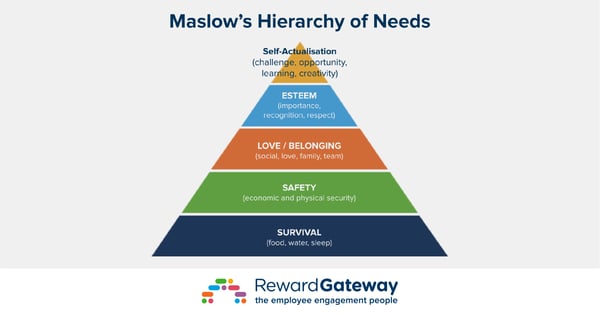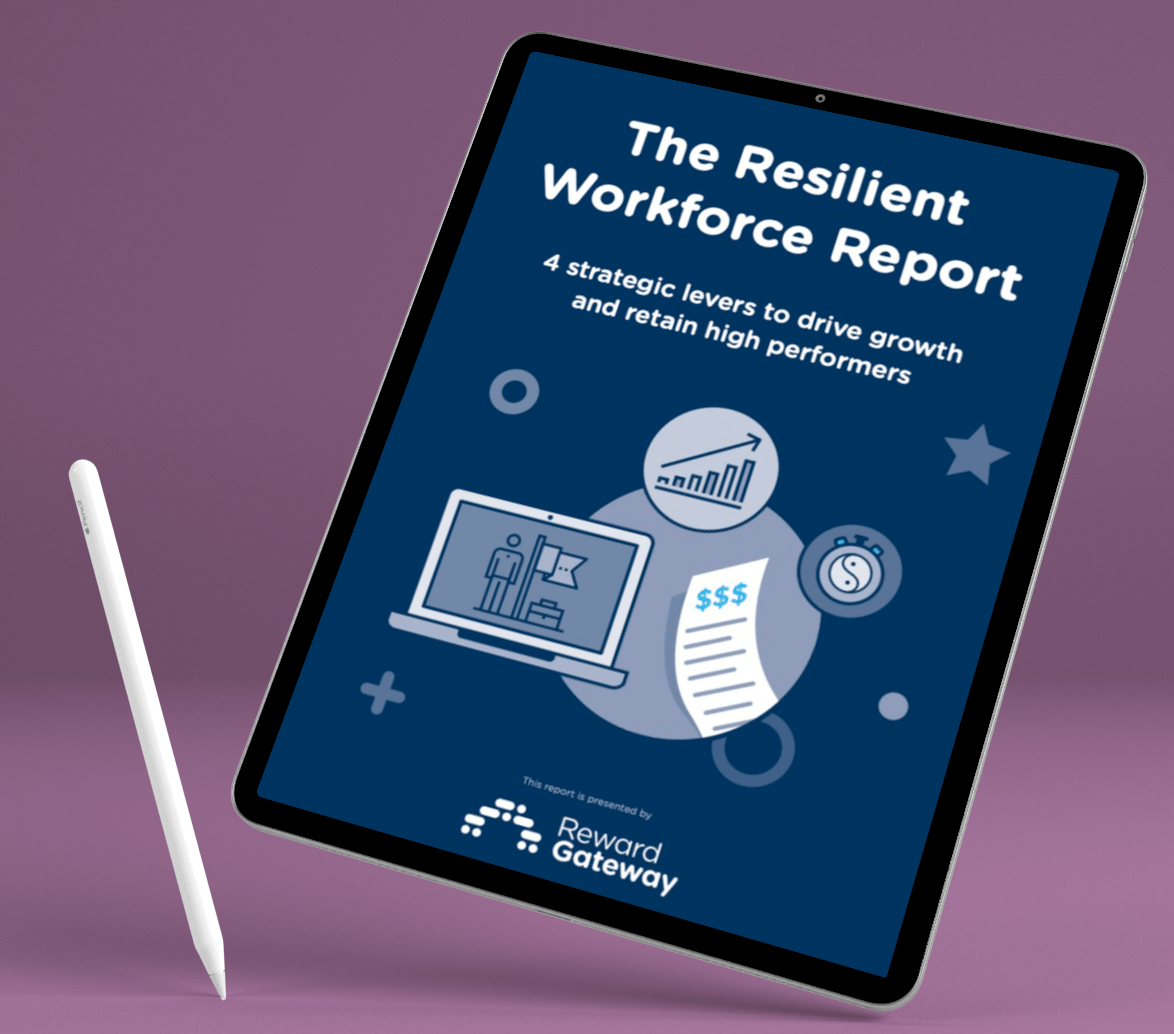Under regular circumstances, People Teams strive to create positive working environments. Environments full of belonging, recognition, productivity and engagement.
With the last few years of change and uncertainty, so much has changed in the world – and Reward Gateway research shows that 70% of people say they have lasting negative effects. With increased stress and burnout levels and high cost of living, helping employees manage their physical, mental and financial wellbeing has become even more important to employers.
A tight job market means those companies that have been able to care for employees’ work and life stress better than others have a lot to gain.
Is it clear to employees and job seekers alike how your company is caring for the wellbeing of its employees – from creating a culture of belonging to support mental wellbeing, to providing benefits that give employees confidence they’ll be able to put food on the table at home?

As the environment around us continues to change, our priorities adapt. These last few years have caused savvy employers to expand focus to include more levels of Maslow’s Hierarchy of Needs. Instead of striving for belonging, esteem and even self-actualization in our workforces, leaders should ensure we are taking care of the basics: safety and survival – are our employees feeling connected and safe? Are issues in their families making it harder for them to be productive? How can we help?
As leaders, we have an opportunity to meet employees where they are and elevate them out of basic needs to provide a sense of security, belonging and respect.
But before we can return our focus to the mid- and top-tier needs in Maslow’s model, we need to make sure we have addressed our new reality. Right now, our people (and our People Teams) are feeling isolated, uncertain and under pressure. We need to start by giving ourselves and our teams time to adjust.
Start with the facts
If our people are operating from a place of stress or burnout, making well-informed decisions or behaving with long-term goals in mind is challenging. And operating in this manner over a long period of time becomes exhausting and will impact physical health.
Leaders can lessen the stress and help employees regain a sense of stability and security by providing clear, consistent and accessible information.
By prioritizing open and honest communication and helping employees stay up-to-date and in-the-know, leaders can make a positive impact on morale and productivity. Providing clarity on these facts can empower employees by moving their focus from the “unknowns” to the “knowns.”
Remember your “true north”
Many companies’ structures and processes have continued to evolve and shift, and teams may have been understaffed for an extended period of time. Reminding people that the contribution they make today will help create a stronger future can be encouraging and provide hope and focus.
We have heard from clients that it helps to provide inspiring and engaging communications if they are talking about how their people can continue to support the known company mission or values:
- “Despite some big changes, I appreciate how committed you have been to our value of Teamwork. Here are some ideas for how we can make Teamwork even stronger…”
- “As you make decisions in the field, remember our mission of ‘Making customers’ lives easier’ If you are hitting obstacles that make it harder to fulfill on that mission – let us know so we can support you.”

Stay focused on people
What we expect from managers may have become more complicated. Managers may feel they are shouldering the wellbeing of whole families, not just employees. Staying motivated and productive means proactively prioritizing and acting on the things we can directly influence – like the connections and relationships we have with employees. You may not be able to predict when prices will fall or the team will be fully staffed, but we can ensure we know how our team is feeling and let them know we care.
A top-rated ‘must-have’ for employers for the last couple of years has been a manager that cares. Only fair pay ranks higher.
Does someone need to adjust their schedule due to a partner working a second job? How can the expectations be adjusted so they will be motivated to make the most of the time that they have, rather than feel set up for failure? Are you struggling with your personal wellbeing? Take that as a learning experience and share it with others. By collaborating and being vulnerable, the team can support each other, and work together to find strategies to stay on track.

Make time for the positive
And when things go well? Celebrate those successes individually, as a team, and across the company with an employee experience platform. Feeling successful despite obstacles will support motivation and results for you and your team. Set aside time each week to consider what is working. If you can’t think of anything, consider who is living your company mission or values, or reach out to the team and ask them to share their victories.
Remember that focusing on safety and security doesn’t mean we need to abandon our focus on respect, recognition and engagement. By finding time in our weeks to communicate what is working, stay connected to our teams, and recognize the great work they are doing we can simultaneously address those higher-level needs in Maslow’s Hierarchy.
Making time for recognition and connection can benefit our business and people’s wellbeing — rather than waiting for this all to be over before putting this first, prioritizing it now can help inspire innovation and growth.
While change is a constant, there are things we can do now to set our people up for success today and well into the future. We should start by ensuring our our employees’ base-line needs, but building channels for open and honest communication and reminding people of the impact they make to your bigger mission will develop strong foundations that will also strengthen the next tiers.
We’d love to hear how you are progressing and how or where your focus is shifting as we navigate this new world of work together.

%20(1).jpeg) Alexandra Powell
Alexandra Powell





